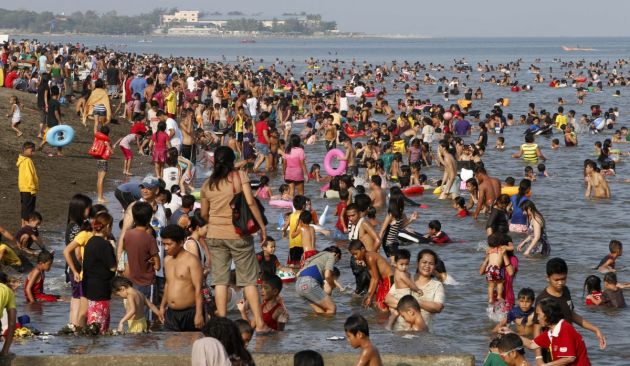Philippines's Good Friday group re-enacts crucifixions and whippings

Catholic devotees in the Philippines re-enacting the last moments of Jesus were nailed to wooden crosses while others whipped themselves bloody in extreme displays of religious devoutness on Good Friday.
In most of the country, Filipinos went to church or spent the Christian holy day with family.
Thousands gathered in villages around San Fernando city, north of Manila, to watch men punish themselves in a bid to atone for their sins or seek miracles from God, AFP reported.
Good Friday is an important holy day for the Christian faith; on that day, Jesus was arrested and put on trial for claiming to be the Son of God, according to NBC.
Roman authorities sentenced him to death by crucifixion.
He was beaten and forced to carry a wooden cross to the place of execution — called Golgotha or Calvary — where he was nailed to the cross and left to die. Jesus was eventually taken down from the cross and buried, according to the Bible.
While Christians observe their Holy Week, Muslims are fasting for the holy month of Ramadan and Jews are preparing for the coming of Passover celebrations next month.
Springtime in Jerusalem, when these three faiths observe these important days on their respective calendars, can be a powerfully spiritual experience and a time of great hope in a land wracked by decades of conflict, The GroundTruth Project reported.
For the Christian faithful, Good Friday is a day of reflection on the events in Jerusalem more than 2,000 years ago that led to the betrayal of Jesus by one of his disciples, and his sentencing to death under the Roman prefect Pontius Pilate and crucified and buried.
"The sorrow of Good Friday is followed three days later by the joyous celebration of Jesus' Resurrection on Easter Sunday and the Christian belief that the crucifixion prepared the way for salvation for all of humanity," said GroundTruth Weekly.
Back in the Philippines, dozens of bare-chested flagellants wearing black shrouds and crowns made of vines walked barefoot through dusty, narrow streets.
Rhythmically, they flogged their backs with strips of bamboo tied to ropes, their blood soaking the top of their trousers and spattering onlookers.
Some lay face down on the ground to be whipped and beaten by others, razor blades sometimes used to draw blood.
"This is for my son, an epileptic," said Joel Yutoc, who has his 13-year-old son's name tattooed across his chest.
Yutoc, 31, said his son had not had seizures in the eight years since he began taking part in the Good Friday floggings.
The whippings are the opening act of street plays performed by devout residents